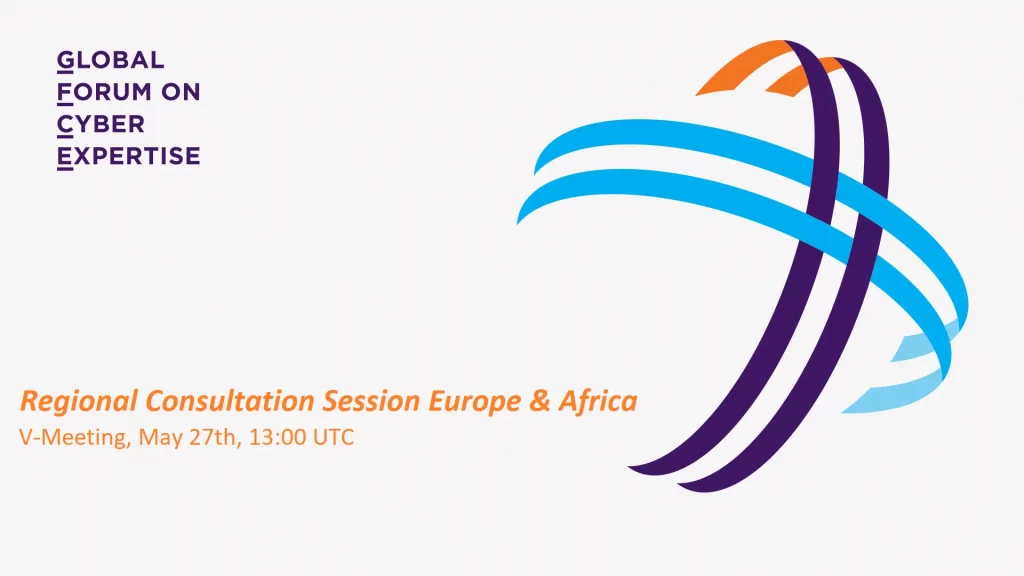Report on the GFCE Regional Consultation Session Europe & Africa
Report | GFCE V-Meeting “Regional Consultation Session Europe & Africa” | 27 May 2020
The GFCE organised its third regional consultation session for the Europe & Africa region, as part of the V-Meeting, following the regional consultation sessions for the Americas and for Asia & Pacific. Regional stakeholders had the opportunity to get together and discuss the benefits of GFCE membership and how their respective organizations and countries can contribute to the GFCE processes, gathering valuable input for the next steps of the GFCE Forward document.
In the beginning of the session, the participants shared their opinion regarding the benefits of the GFCE, by specifically highlighting the importance of the platform in bringing together national, regional and global actors involved in cyber capacity building projects and initiatives. The GFCE’s international network involves both top-down and bottom-up approaches in cyber security and capacity building. According to the participants, one of the key aspects of the GFCE is the platform’s diversity; different stakeholders have the chance to collaborate on the most effective way, in order to implement and influence cyber capacity building policies.
The GFCE community was also asked to share its thoughts and ideas on what are the Europe and Africa regional cyber capacity needs and what role the GFCE can play in addressing these. Regarding the European region, stakeholders pointed out the importance of European organizations to specifically focus on finding countries with cyber capacity building gaps and weaknesses and help them overcome these and move forward. The GFCE can play a crucial role in match-making these countries with CCB implementers. In addition, GFCE members and partners’ representatives from the Africa region, highlighted the different needs of African countries in CCB resources, and mentioned that the GFCE has a crucial role in the Global South by matchmaking countries with CCB donors and implementers. Also, another important point raised, was the need for more involvement of tech companies and the ICT sector from the region in the GFCE.
Some of the most important benefits of the GFCE highlighted by the participants of the session, include: match-making assistance between cyber capacity building implementers and funders, regional and national CCB needs’ assessment, influence and shaping of national, regional and global policies, coordination and avoiding duplication of efforts, networking and contact opportunities, knowledge sharing and expertise, diversity of cyber needs and perspectives, research agenda and global good practices. The added value of the GFCE is the ability to bring together relevant CCB actors and equip them with the capacity to cooperate and coordinate their CCB efforts and initiatives.
The session ended with Ms. Carmen Gonsalves, GFCE Co-Chair and Mr. Chris Painter, President of the GFCE Foundation Board, highlighting the goal of the GFCE to become the global coordination platform for cyber capacity building. As the GFCE mission is to strengthen cyber capacity and expertise globally by being a pragmatic and action-oriented platform for international collaboration, Mr. Painter pointed out that a multi-stakeholder approach and inclusiveness are two fundamental factors for the GFCE and its way forward.
